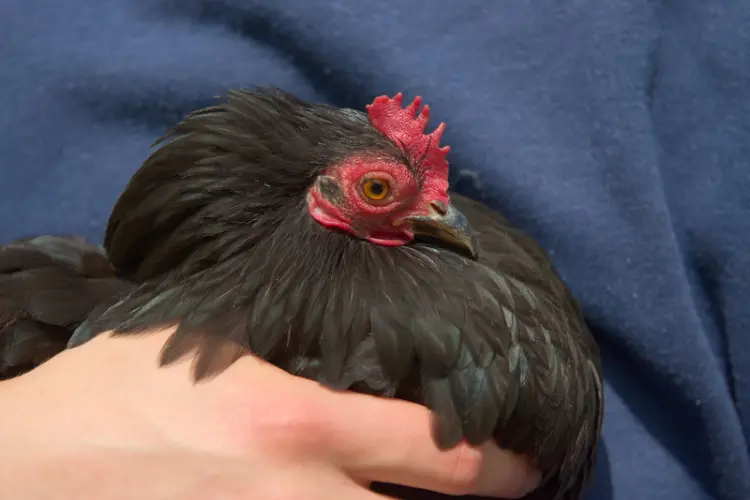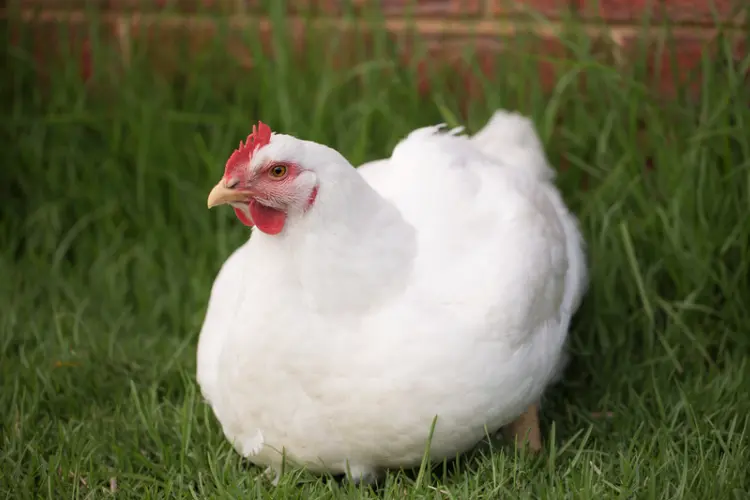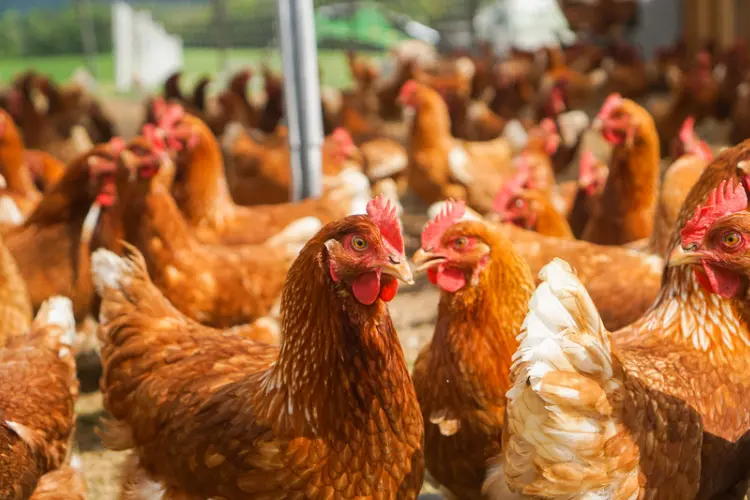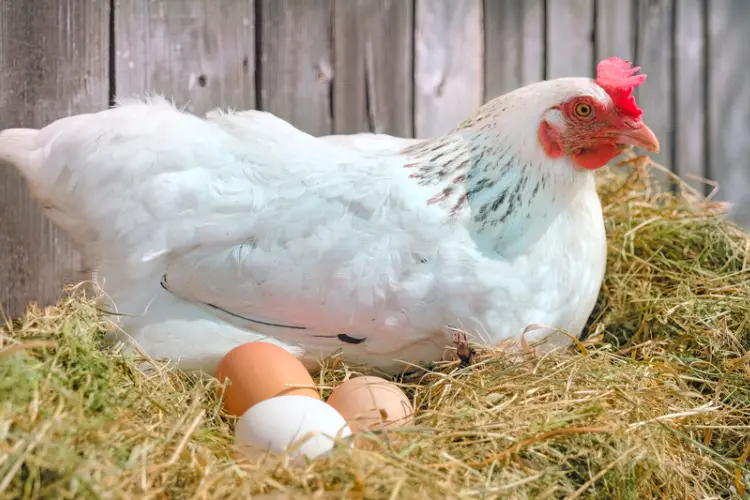When Do Chickens Start Laying Eggs?
Raising chickens can be fun, but it’s also a bit tricky, especially when you’re new to it. One of the big questions most new chicken owners have is, figuring out when do chickens start laying eggs
Waiting for that first egg can be a bit nerve-wracking, especially if you’re not sure you’re doing everything right for your chickens. If you’re feeling a bit lost or worried about when your hens will start laying eggs, you’re not alone. That’s why we’ve put together this easy guide to help you know what to expect and how to make sure your chickens are happy and healthy.
What Age Do Chickens Begin to Produce Eggs, and For How Long?
Chickens, specifically hens, typically start laying eggs when they are about 5 to 6 months old, but this can vary depending on the breed, time of year they were hatched, and individual hen’s development.
For instance, some breeds, like the White Leghorns, can start laying as early as 4 to 5 months, while heavier breeds such as the Rhode Island Reds, might start laying at around 6 to 7 months. If a pullet (young hens) matures in the winter months, she may not lay her first egg or stop laying eggs until the days start to lengthen in the spring, even if she is already 6 months old.
Once hens start laying, they can continue to produce eggs for several years, but their highest rate of production is typically in the first couple of years. A hen’s egg production tends to drop each year after her first year of laying eggs. At peak production, a hen might lay an egg almost every day, or about 5 to 7 eggs per week.
On average, chickens usually lay consistently for about 2 to 3 years. After that, the number of eggs they lay might decrease, but they can continue laying for several more years at a slower pace. It’s not unusual for a chicken to live 5 to 10 years, but older hens lay eggs less frequently than when they were younger.
Do Chickens Lay Eggs without a Rooster?
Yes, hens can lay eggs without a rooster. Chickens don’t need a rooster around to produce eggs; they do so naturally once they reach maturity. A hen’s body begins producing eggs regularly, usually, one every 24 to 27 hours, when she’s about 5 to 6 months old.
However, if a rooster is not present, the eggs the hen lays will be unfertilized. This means the eggs won’t develop into chicks if incubated. The eggs we typically consume are unfertilized eggs. If a rooster is present and mates with the hen, the eggs she lays could be fertilized and have the potential to develop into chicks.
Signs When They’re Getting Ready to Start Laying Eggs
Loud Clucking or “Singing”

One of the earliest signs a hen might be nearing her egg-laying stage is an increase in vocalizations, commonly called ‘singing.’ This ‘song’ is often a persistent, loud clucking that can occur several hours before laying and continue through the laying process. This vocal behavior isn’t merely noise; it’s a crucial part of the chicken’s communication, possibly alerting the flock of the upcoming addition or expressing discomfort during the egg-laying process.
Redder, Larger Wattle and Comb

Another visible change signaling the onset of egg-laying is a change in the hen’s wattle and comb’s color and size. As a hen reaches sexual maturity, hormonal changes cause her wattle and comb to become more prominent and darken to a deeper red. This physical change indicates that a hen is gearing up to begin her egg-laying phase.
Nesting Behaviors

In the period leading up to the onset of egg-laying, a hen will exhibit a keen interest in finding a suitable place to lay her eggs. This behavior manifests as the hen exploring the chicken coop’s nesting boxes or other secluded areas, looking for the perfect spot. To help guide your hen to a suitable laying area, you can place an egg or a faux egg in the nesting box, reinforcing that this is her ‘designated area’ for laying.
Read also: The Best Chick Brooder Guide: 2023’s Hot Picks Revealed
Increased Appetite
Just before she starts laying, a hen’s appetite may noticeably increase. This change in eating behavior is entirely normal and necessary, as producing an egg requires additional nutrients. By consuming more food, the hen is fueling her body to create and lay eggs.
Squatting

A behavioral change often observed in hens about to lay eggs is ‘squatting.’ This gesture, also known as the ‘submissive squat,’ involves the hen lowering her body or spreading her wings slightly when you reach to pet her. This behavior indicates that the hen is ready to start laying or may have already begun. The squat is also a reproductive behavior, indicating the hen’s readiness for mating with a rooster.
What To Prepare Before They Lay Eggs
Preparing for your hens to start laying eggs involves several key steps to ensure the health of your hens and the quality of their eggs:
- Proper Nesting Boxes: Nesting boxes provide a clean, safe place for your hens to lay their eggs. Generally, you should provide at least one nest box for every 3 to 4 hens. These boxes should be lined with clean, soft bedding, such as straw or wood shavings, to cushion the eggs and prevent them from breaking.
- Nutritionally Balanced Feed: As hens approach laying age, their dietary needs change. Laying hens need a feed that’s higher in calcium and protein to support egg production. Look for a feed labeled for laying hens, sometimes called “layer feed.” Additionally, providing a separate dish of oyster shells or crushed eggshells can offer extra calcium for strong eggshells.
- Fresh Water: Always ensure your chickens have access to clean, fresh water. Hydration is crucial for egg production; a lack of water can significantly decrease egg laying.
- Predator-Proof Housing: It’s essential to secure your chicken coop against potential predators. Hens are vulnerable while laying eggs, and a predator’s presence can stress your chickens, affecting their egg production.
- Lighting: Chickens need about 14-16 hours of light per day to maintain optimal egg production. If you’re raising chickens in an area with shorter daylight hours, you may need to supplement with artificial light in the coop.
- Proper Ventilation: Good airflow in the coop helps keep your hens healthy and ensures a comfortable environment for egg-laying. However, be sure the coop doesn’t get too drafty, as cold air can harm your chickens.
Factors Influencing a Hen’s Egg-Laying Abilities
When it comes to a chicken’s egg-laying, several factors can influence the process. Here are some critical aspects to consider:
Age and Breed
Chickens typically begin laying eggs around the age of 5 to 6 months, but this can vary depending on the breed. Certain chicken breeds, such as Leghorns, Rhode Island Reds, and Australorps, are known for their early maturity and high egg production. Heavier breeds, like Orpingtons and Barred Rocks, may take longer to start laying.
Read also: 20 Best Giant Chicken Breeds ( For Meat + Egg Production)

Sexual Maturation
Egg production begins when hens reach sexual maturity. The reproductive system of a hen, comprising an ovary and oviduct, develops rapidly at this stage. This development is influenced by the bird’s weight and body fat percentage. If the bird is underweight or overweight, the reproductive organs may not develop fully, affecting egg production.
Exposure to Light
Light exposure, or photostimulation, is critical in triggering egg production. The pineal gland in the bird’s brain processes light input and secretes hormones that guide their circadian rhythms. As chickens are long-day breeders, more daylight hours during spring and summer often increase egg production. Conversely, in fall and winter, with shorter daylight hours, hens may lay fewer eggs.
Conclusion: When Do Chickens Start Laying Eggs
Raising chickens for egg production involves understanding their physiology, behavior, and the factors influencing their egg-laying ability. Typically, hens begin laying eggs around 5 to 6 months of age, but this can vary depending on breed and individual health.
Factors such as sexual maturation, exposure to light, and nutrition all play a significant role in egg production. Proper care, suitable feed, adequate light, and a safe, comfortable environment can enhance your flock’s laying capabilities. As you navigate your chicken-raising journey, it’s this understanding and care that can make the experience both rewarding and enriching.





Comments are closed.